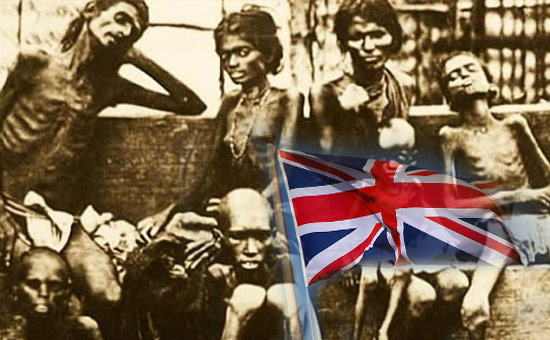- Why was Pakistan under the spotlight post Sept 11, 2001 till early 2002? How was the spotlight shifted? What are the fault lines between England & three countries of the United Kingdom?
The recent BBC documentary on Gujarat 2002, post the burning alive of 59 women and children, became the topic of prime time TV debate in India last week. For years’ discussions invariably made it sound as if 2002 was India’s first riot.
This Outlook India article provides details of major riots since 1967. Next, this Firstpost article tells which political party ruled the state during riots referred to in the Outlook article and, details of Bomb Blasts since 1993. Hindu-Muslim riots took place under British Rule too. My compilation has the details. In 2022, Hindus were attacked in Leicester , England. It does not mean that one is justifying violence but an informed non-biased perspective helps in the long run.
The documentary was able to get BJP supporters defensive and secularists aggressive, both of whom forgot that 250 Hindus died in the violence.
Why would BBC make a documentary on an old issue?
Former Foreign Secretary Kanwal Sibal wrote, “India’s independent position on the Ukraine conflict when the UK is war-mongering on the issue cannot but displease circles in the U.K. and the West in general, including think tanks, the western media, the ideological billionaires who are funding foundations to prevent countries like India to develop a strategic autonomy and resist the West’s control over their decisions.”
A London based analyst says, “U.K. wants a stronger position on the Free Trade Agreement negotiations with India so they are using this to create pressure. Classic British game. Another reason could also be to reign in Modi given his proximity to Russia and USA at the same time. British are heavily invested in Ukraine and may be the idea of Modi being able to negotiate with both Putin and Biden isn't looking good to the British deep state.” Can it even be a move to thwart Indian efforts to make a success of its G20 Presidency?
Returning
to early 2002, it is important to know the international situation then.
Two major terrorist attacks in 2001 were September 11 in New York and the December 13 Parliament House in New Delhi. The spotlight was on Pakistan. In response, India launched Operation Parakram, said to be India’s biggest and longest ever mobilization of armed forces, and the U.S. started the bombing of Afghanistan . Pakistan’s role in the Parliament House attack was clear. However, its providing a safe haven to Osama-Bin-Laden only got confirmed later.
In such a situation Pakistan had to shift one, global attention from itself and second, the Indian Army from its borders. The powers that be knew that a Godhra type of killing would result in a strong backlash and shift the focus to India.
In
a 2005 article for Rediff.com Col
Anil Athale (retd) wrote it was likely that the post Godhra riots saved Pakistan from being attacked by India. Troops earmarked for internal riot control duties were deployed at the border. He said, “Almost two army divisions were withdrawn from the border, creating a gaping hole in the defences, weakening the threat of armed action against Pakistan.”
Most have failed to see this connection. This and the trigger for the post Godhra violence is not spoken about enough. Instead, many are over reacting to the BBC documentary.
It is perhaps time to highlight fault lines within the United Kingdom and recall what Sardar Patel said on August 9, 1945, “The British talk of Hindu Muslim quarrels but who has thrust the burden on their shoulders? If they are sincere let them hand over to the Congress, League or international arbitration. Give me just a week’s rule over Britain, I will create such disagreements that England, Wales and Scotland will fight one another for ever.” (Patel-A Life by Rajmohan Gandhi).
Let us get
a peep into the dynamics between member countries of the United Kingdom (U.K.) i.e.
England, Scotland, Ireland and Wales. Great Britain includes
England, Wales and Scotland. Read on.
England (ENG) and Ireland. Today Southern Ireland (SI) or Ireland is an independent country having Euro as its currency and Northern Ireland is part of the U.K. with the Pound Sterling as its currency. Was it always that way?
According to Britannica.com, “In 1919 an Irish republic was proclaimed by Sinn Féin, an Irish nationalist party. Facing civil war in Ireland, Britain partitioned the island in 1920, with separate parliaments in the predominantly Protestant northeast and predominantly Catholic south and northwest. However, the republicans opposed the formula, and in 1922 the Irish Free State was formed. Almost immediately, the northeast-Northern Ireland (NI)-withdrew and accepted self-governance within the United Kingdom”.
England is Protestant. Southern Ireland is Catholic whilst NI is mainly protestant. Thus, NI culturally and historically feels part of ENG.
On differences between the two; briefly, Protestants have encouraged private interpretation of scriptures by individuals in contrast to the Roman Catholic Church where scriptural interpretations are done by the Pope and the College of Cardinals. Note, that one cannot be a Roman Catholic and Protestant simultaneously, meaning they are mutually exclusive unlike Indic faiths.
There is
not much love between England and Ireland. The year 1968 saw the start
of Catholic civil rights marches in NI. This led to violent reactions from some
Protestant loyalists etc. Reference Violence ceased with the signing of the Good Friday Agreement in 1998. Over 3,000 people died between 1968 and 1998. According to a Irish government site,
“The 1998 Agreement set out a framework for both communities in Northern Ireland to resolve their differences and ended decades of violence.”
Today,
Ireland is part of the European Union whilst Northern Ireland is part of the United Kingdom. NI wishes to be part of the European Union. Ditto for Scotland.
Also read U.K.
faces a challenge after support for Scottish independence and Irish
reunification reach highest ever
Lastly, there seems no tenable reason for the U.K. to continue to occupy
Northern Ireland and prevent Irish reunification. Surely, Protestants are safe
in Ireland and all over the European Union without needing any special English
security. Inspite of the core of their faith being centred on Jesus, what
is the cause of such distrust between Protestants and Roman Catholics?
 Read about Famines in India during British Rule.
Read about Famines in India during British Rule.
Next England and Scotland.
Brief history as per BBC – Ruler of Scotland James VI became ruler of England in 1603 and moved his court to London. In 1707, “Scotland's century of semi-detachment, sharing a monarch but clinging on to its own parliament, came to an end in a period of economic stagnation.” In 1885
was created the Scottish Office to administer the central government functions.
Scotland had its own identity but was firmly part of the U.K. “When Labour returned to power under
Tony Blair it had a new plan for a Scottish parliament and a new referendum. In a two-question vote, the Scottish electorate gave a clear answer (no
to Independence). There would be a Scottish parliament and it would have
tax-raising powers.
Two years later, the parliament was a reality. Scotland had its own distinctive voice within the United Kingdom.” In 1998 the Scottish Parliament was created and some
powers devolved.
Also read What holds Scotland Back? Our
relationship with England and ourselves
A
referendum was held in 2014 in which the Scottish people voted against independence from the U.K. “Scotland's first minister has said a second independence referendum is "highly likely" after the UK voted
to leave the EU.”
However, the UK Supreme Court ruled in November 2022 that the Scottish government cannot hold a second referendum without the U.K. government’s consent.
It seems that the Scottish people are unhappy with the U.K.’s decision to quit the European Union.
Now suppose the Indian government hectored the U.K. to hold the next
Scottish independence referendum immediately and under neutral international supervision!
 Veena Talwar tells how the British created the Dowry system in Punjab.
Veena Talwar tells how the British created the Dowry system in Punjab.
Lastly, let us look at England and Wales.
A 1536 bill made Wales part of England.
Martin
Johnes, Professor of Modern History at Swansea University and the author
of England’s Colony? The Conquest, Assimilation and Re-creation of Wales wrote A brief history of Wales: a
resilient nation Extracts, “Wales remained culturally distinct because the majority of its people spoke Welsh until the end of the 19th century. Religion was important to the reinvigoration of Welsh identity too. The majority of people were Nonconformists rather than Anglicans, and this was seen as further evidence that Wales and England were different.”
A
National Assembly for Wales was created in 1999 and certain powers moved from
Westminster to Wales.
Are the English and the Welish people similar? Do people of Wales like the English?
Also read How is Wales governed
In case of any errors, they are unintended. Do mail me with sources and if admissible, this author shall gladly correct his errors.
Notwithstanding my love for England, should India work towards making Sardar Patel’s words come true?
Also read
1. Culture is at the root of Indian nationhood
2. CAA redeems historical promises
3. Indian Muslims and the well of victimhood
4. The Muslim Community and their leaders
5. Empowerment of Pasmanda Muslims is a must
6. Why the scrapping of Art 370 and 35A was a good move
7. Famines during British Rule
8. How British created the Dowry System in Punjab
9. Why British demonised Caste
10. Modern day Sikhism is a colonial construct
11. Why Secularism is not an Indian concept